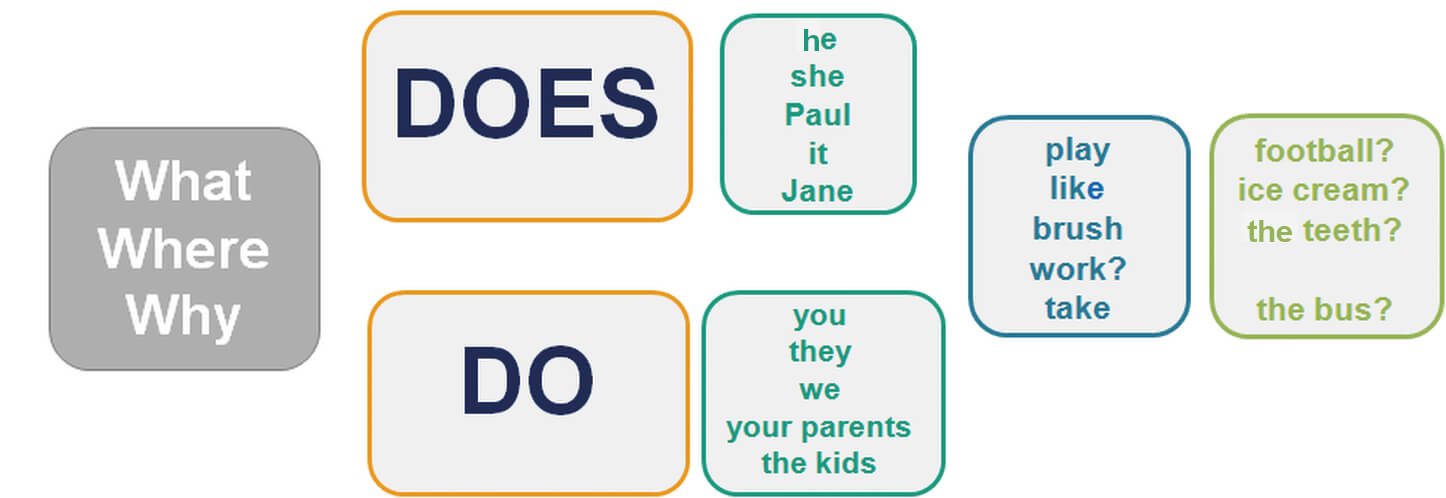After you’ve been in a car accident, the insurance company will likely ask you a number of questions to help them determine who was at fault and how much you should be compensated.
Being prepared for these questions can help you get through the process more quickly and efficiently.
Here are some of the most common questions that insurance companies ask after an accident:
- What is your name, address, and phone number?
- What is the make, model, and year of your vehicle?
- What is your insurance policy number?
- Who is your insurance provider?
- Were you the driver of the vehicle?
- If not, who was the driver?
- Who else was in the vehicle with you?
- What were the circumstances of the accident?
- Where did the accident occur?
- What time did the accident occur?
- Were there any witnesses to the accident?
- Did you take any photos of the accident scene?
- Do you have any injuries?
- What is the extent of your injuries?
- Have you seen a doctor for your injuries?
- What is the name of your doctor?
- What is your doctor’s phone number?
- What is the estimated cost of your medical expenses?
- What is the estimated cost of your property damage?
- Have you filed a police report?
- What is the police report number?
It is important to be honest and accurate when answering these questions. The insurance company will use your answers to determine who was at fault and how much you should be compensated.
If you are not sure how to answer a question, or if you need more time to gather information, you can always tell the insurance company that you will get back to them later.
What Questions Do Car Insurance Companies Ask After an Accident?
In the aftermath of a car accident, it’s natural to feel overwhelmed. But it’s important to stay calm and collected so you can provide the necessary information to your insurance company. Here are some common questions you can expect them to ask:
Personal Information
Your insurance company will need to verify your identity and contact information. They’ll ask for your full name, address, phone number, and driver’s license information. Make sure you have this information readily available when you call to report the accident.
Additionally, they’ll inquire about your date of birth, marital status, and any other relevant personal details. These pieces of information help the insurance company assess your risk profile and determine the appropriate coverage for your situation.
Providing accurate and complete personal information is crucial forスムーズな auto insurance claim processing. It allows the insurance company to quickly identify you, contact you regarding the claim, and assess your eligibility for coverage. So, make sure you have all the necessary documents and information at hand when you make that initial call.
Don’t worry if you can’t remember every detail right away. The insurance company will guide you through the process and help you gather the necessary information.
What Questions Do Car Insurance Companies Ask After an Accident?
After you’ve been in a car accident, the last thing you want to deal with is a barrage of questions from your insurance company. They need to gather information to process your claim. What’s more, what they ask can sometimes feel intrusive or irrelevant. But it’s important to remember that they’re just doing their job. The more information you can provide, the quicker and easier it will be to get your claim settled.
Policy Information
Whether you call your agent or file a claim online, they’ll need to verify who you are and that you have an active policy. That’s why your policy number and the name of your insurance company are the first things they’ll ask for. If you can’t find your policy number, don’t worry. They can look it up using your name, address, or vehicle identification number(VIN). If you recently moved or changed your policy, you need to update your information with your insurance carrier. It’s a good idea to keep your insurance card in your glove compartment so you always have it on hand if you need it.
Accident Details
The insurance company will want to know everything they can about the accident, including:
1. When and where did the accident happen?
2. What type of accident was it?
3. What were the circumstances leading up to the accident?
4. Were there any witnesses?
5. Were there any injuries?
6. What is the extent of the damage to your vehicle?
7. What is the extent of the damage to the other vehicle(s) involved?
8. Who was at fault for the accident?
9. Was a police report filed?
If possible, take pictures of the accident scene and get the names and contact information of any witnesses. Cooperate fully with the police and be honest with them about what happened. This will help you to avoid any potential problems with your insurance claim.
Driver Information
The insurance company will also need to know about the drivers involved in the accident, including:
1. Their names and addresses
2. Their dates of birth
3. Their driver’s license numbers
4. Their insurance information
5. Their contact information
If you were not the only driver involved in the accident, you will need to provide the same information for the other driver(s) as well.
Vehicle Information
The insurance company will need to know about the vehicles involved in the accident, including:
1. The make, model, and year of each vehicle
2. The license plate numbers of each vehicle
3. The VINs of each vehicle
4. The names of the insurance companies for each vehicle
5. The policy numbers of each vehicle
6. The damage to each vehicle
If you have any photos of the damage to your vehicle, be sure to provide them to the insurance company. This will help them to assess the extent of the damage and determine how much your claim is worth.
What Questions Do Car Insurance Companies Ask After an Accident?
After a car accident, it’s important to report it to your insurance company as soon as possible. They’ll need to gather information about the accident in order to process your claim. Here are some of the questions they’re likely to ask:
Accident Details
Your insurance company will want to know the date, time, and location of the accident. They’ll also need to know the names and contact information of any witnesses. If there was a police report, they’ll need the report number. Additionally, they may ask for photos or videos of the accident scene.
Your Injuries
If you or anyone else was injured in the accident, your insurance company will need to know the extent of the injuries. They’ll want to know what type of injuries you sustained, how severe they are, and how they’re being treated. They may also ask for medical records or documentation from your doctor.
The Other Driver
If the accident was caused by another driver, your insurance company will need to know their name, contact information, and insurance information. They’ll also want to know what type of vehicle they were driving and the license plate number. Additionally, they may ask for a copy of the other driver’s driver’s license.
What Were You Doing Before the Accident?
Your insurance company may ask you what you were doing before the accident. This could include where you were coming from, where you were going, and what you were doing at the time of the accident. They may also ask if you were under the influence of alcohol or drugs.
What Happened During the Accident?
Your insurance company will want to know what happened during the accident. This could include how the accident occurred, who was at fault, and what damage was caused. They may also ask if you were wearing your seatbelt.
What Questions Do Car Insurance Companies Ask After an Accident?
After a car accident, it’s important to know what questions to expect from your insurance company. These questions will help them determine who was at fault and how much damage was done. Here’s what you need to know:
Vehicle Details
Who are you going to call after you’ve been in an accident? Your mechanic, your mother, Vin Diesel? No, the first person you should reach out to is your insurance company. They will need to know the basics about the accident, including the year, make, model, and license plate number of the vehicles involved.
This information will help them identify your policy and start the claims process. So be sure to have this information handy when you call.
How Did the Accident Happen
This is one of the most important questions your insurance company will ask. You need to be able to provide a clear and concise account of what happened leading up to and during the accident.
Be sure to include details such as:
- The time and location of the accident
- The weather conditions
- The traffic conditions
- The speed at which you were traveling
- The actions of the other driver(s) involved
What Damage Was Done
Your insurance company will also need to know the extent of the damage to your vehicle. This will include both the visible damage, such as dents and scratches, as well as any hidden damage, such as frame damage.
Were There Any Injuries
If you or anyone else was injured in the accident, be sure to let your insurance company know. They will need to know the extent of the injuries and who was responsible for them.
Were There Any Witnesses
If there were any witnesses to the accident, be sure to get their contact information. Your insurance company may want to speak to them to get their account of what happened.
Witness testimony can be very helpful in determining who was at fault for the accident. So be sure to get their names and contact information, if possible.
What Questions Do Car Insurance Companies Ask After an Accident?
Filing a car insurance claim after an accident can be a stressful process, especially if you’re unsure what information to provide. Insurance companies typically ask a series of questions to assess the situation and determine liability. Understanding these questions and preparing your answers can help expedite the claim process and ensure you receive fair compensation.
Damages and Injuries
Insurance companies will want a detailed description of the damage to your vehicle and any other vehicles involved in the accident. Provide information about the location of the damage, the extent of the repairs needed, and any injuries sustained by you or other parties. Estimating the cost of repairs can help the insurance company determine the total amount of the claim.
Witnesses and Police Reports
If there were any witnesses to the accident, provide their contact information to the insurance company. Their statements can help corroborate your account of events. Additionally, if a police report was filed, obtain a copy and submit it to the insurance company. The report will provide an official record of the accident, including details about the parties involved and any citations issued.
Insurance Information
The insurance company will need your policy number and contact information, as well as the policy numbers and contact information of any other drivers involved in the accident. If you have any additional insurance coverage, such as uninsured/underinsured motorist coverage or rental car reimbursement, be sure to provide those details as well.
Description of the Accident
Provide a detailed description of how the accident occurred. Include information about the location, time, weather conditions, and any factors that may have contributed to the accident. Be as specific as possible, noting the direction you were traveling, the actions of the other driver(s), and any evasive maneuvers you attempted.
Physical Injuries and Medical Treatment
If you or any other parties involved in the accident suffered injuries, provide detailed information about the injuries sustained. Describe the nature of the injuries, any medical treatment received, and any expected recovery time. Include documentation from medical professionals, such as hospital records or doctor’s notes, to support your claims.
What Questions Do Car Insurance Companies Ask After an Accident?
The moments following a car crash can be stressful and confusing. As you piece together what just happened and begin to seek medical attention for any injuries, the last thing you want to worry about is dealing with your insurance company. However, it’s important to understand the questions they’re likely to ask you so that you can provide them with the information they need to process your claim quickly and efficiently. Some of the key questions they’ll be asking include:
Witnesses and Police Report
When you’re reporting an accident to your insurance company, one of the first things they’ll want to know is if there were any witnesses. If there were, be sure to provide their names and contact information. This will help your insurance company get a better understanding of what happened and how the accident occurred. You’ll also need to provide the police report number, if one was filed. The police report will contain valuable information about the accident, such as the date, time, location, and any citations that were issued.
Vehicle Damage
Your insurance company will also need to know the extent of the damage to your vehicle. If you can, take pictures of the damage and provide them to your insurance company. This will help them assess the damage and determine how much it will cost to repair or replace your vehicle. If you have any estimates from repair shops, be sure to provide those as well.
Injuries
If you or any of your passengers were injured in the accident, be sure to provide your insurance company with details about the injuries. This includes the nature of the injuries, how they were treated, and any medical records or bills you have. Your insurance company may also ask you to provide a statement from your doctor about the extent of your injuries.
Other Drivers Involved
If the accident was caused by another driver, your insurance company will need to know who the other driver is and what type of insurance they have. If you have the other driver’s contact information, be sure to provide it to your insurance company. You’ll also need to provide the other driver’s insurance company’s name and policy number, if you have it.
The Accident
Finally, your insurance company will want to know what happened leading up to the accident. This includes where you were driving, what speed you were traveling, and what actions you took to avoid the accident. Be as detailed as possible in your description so that your insurance company can get a clear understanding of what happened.





Leave a Reply